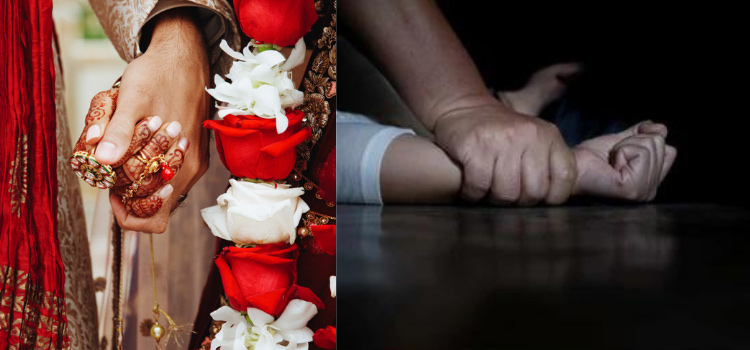Marital rape and criminalization of sexual assault within marriage
Posted On : February 23, 2024

Table of Contents
Introduction
Marriage is often considered a sacred institution that binds two individuals in a lifelong commitment. However, the shadows of abuse within the sanctity of matrimony persist, with one of the most insidious forms being marital rape. In India, the criminalization of sexual assault within marriage has long been a contentious issue, as societal norms and legal frameworks grapple with the need to protect the rights and dignity of married women. This article explores the concept of marital rape, the prevailing challenges, and the ongoing discourse surrounding the criminalization of sexual assault within marriage in India.
What is Marital Rape?
Marital rape refers to any unwanted sexual activity forced upon a spouse without their consent. It is an act of domestic violence that violates the fundamental right to bodily integrity and autonomy within the confines of marriage. Contrary to popular belief, marriage does not grant an irrevocable license to one's body. Consent, even within matrimony, is a continuous and voluntary agreement that must be respected.
Legal Provisions for Marital Rape in India
Marital rape was not explicitly recognized as a criminal offense in India. At that time, the exception to the offense of rape under Section 375 of the Indian Penal Code (IPC) stated that sexual intercourse or sexual acts by a man with his own wife, if she is above 15 years of age, does not constitute rape. This exception was widely criticized as it left married women without legal protection from spousal sexual violence.
Activists and organizations in India have been advocating for the criminalization of marital rape and amendments to existing laws to provide better protection to victims of domestic violence.
Challenges Faced by Survivors
The legal challenges faced by marital rape survivors in India primarily revolve around the absence of specific legislation criminalizing marital rape. Here are some of the key legal challenges:
Absence of a Specific Law
Unlike many other countries, India does not have a specific law that criminalizes marital rape. The exception in Section 375 of the Indian Penal Code (IPC) excludes non-consensual sexual acts by a husband from the definition of rape unless the wife is below 15 years of age.
Limited Legal Recourse
The lack of a specific legal provision addressing marital rape makes it challenging for survivors to seek justice through existing legal frameworks. Survivors may face difficulties in registering complaints and pursuing legal remedies.
Ambiguity in Definition
The absence of a clear legal definition of marital rape contributes to ambiguity in identifying and prosecuting such cases. The legal system may struggle to provide effective remedies when there is no explicit recognition of the offense.
Social and Cultural Bias
Social and cultural biases can affect legal proceedings, with judges, lawyers, and law enforcement personnel sometimes holding traditional views that undermine the severity of marital rape. This bias may influence the handling of cases and the interpretation of laws.
Lack of Evidence Standardization
The absence of standardized protocols for collecting evidence in cases of marital rape can impact the quality of evidence presented in court. This may pose challenges in establishing the non-consensual nature of the sexual acts.
Fear of Retaliation
Survivors may fear retaliation or societal backlash if they choose to report marital rape. This fear can act as a deterrent, preventing survivors from coming forward and seeking legal assistance.
Dependency and Economic Factors
Economic dependence on the spouse can complicate legal matters, as survivors may face challenges in securing financial support or maintaining economic independence if they choose to pursue legal action.
Inadequate Support Services
Limited availability of support services, such as counselling, legal aid, and safe shelters for survivors, can hinder their ability to navigate the legal system effectively.
Ongoing Discourse and Advocacy
The absence of specific legislation criminalizing marital rape has sparked widespread debate and activism in India. Advocates argue that the legal system must evolve to protect the rights and well-being of married women. Various women's rights organizations, activists, and legal experts are tirelessly working towards bringing about a change in the law, emphasizing the need for consent and bodily autonomy within marital relationships.
International Perspectives
Several countries worldwide have recognized the gravity of marital rape and have criminalized it, acknowledging that marriage should not be a shield for perpetuating violence. India stands at a crossroads, urged by international human rights standards to align its legal framework with the global commitment to protecting women from all forms of violence.
Conclusion
Marital rape is a grave violation of human rights that continues to afflict many women within the confines of their homes. As India grapples with the need for legal reforms, it is crucial to recognize that the criminalization of sexual assault within marriage is not an attack on the institution of marriage itself but a necessary step toward ensuring the protection of individuals' autonomy and dignity. It is time to break the silence, challenge archaic norms, and work towards a legal framework that fosters a society free from the shackles of marital rape. To know more about marital rape and sexual assault within marriage under Indian Penal Code, it is advisable to consult a criminal lawyer in your city. For example, if you are residing in Kolkata, you should contact a criminal lawyer in Kolkata
























